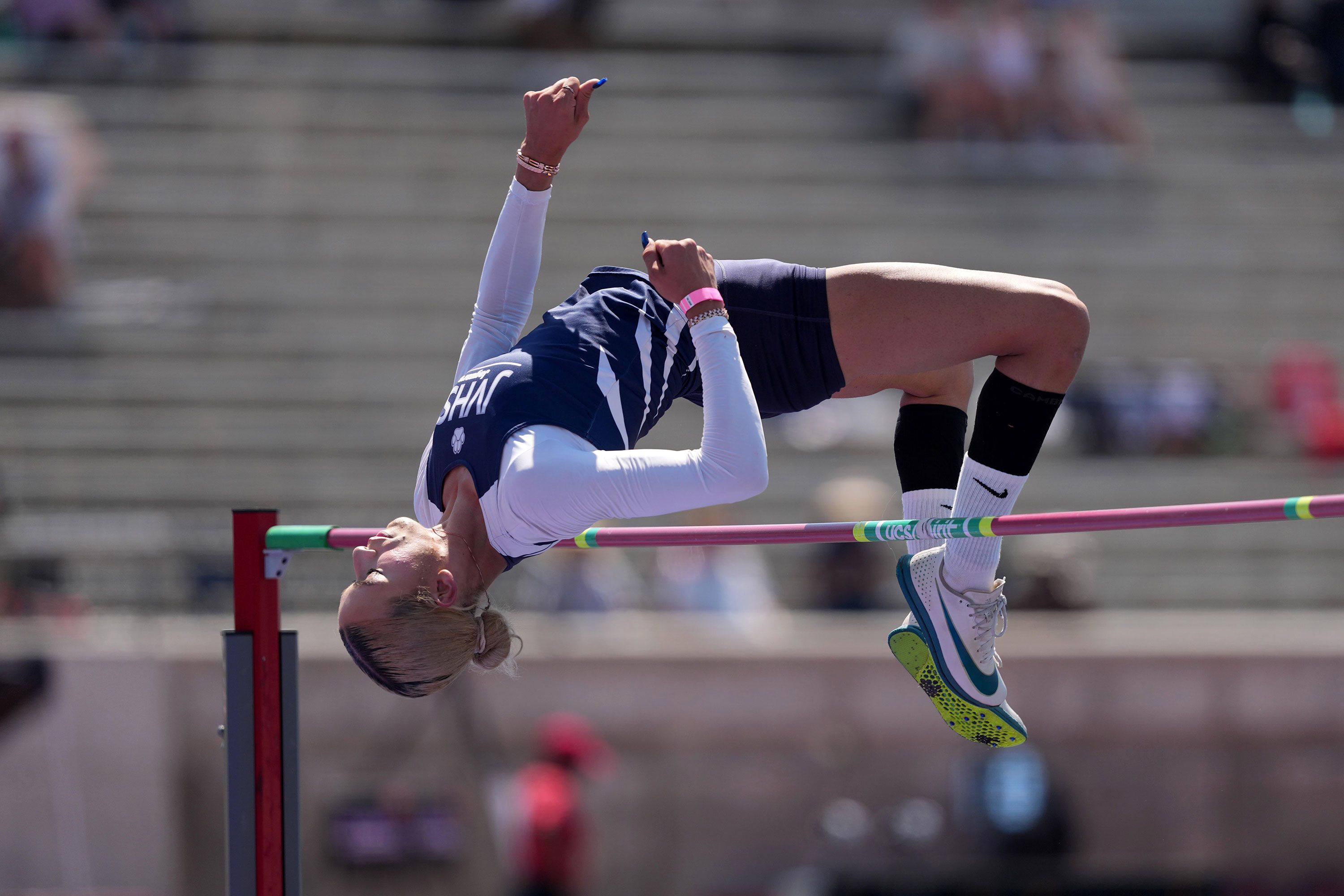AB Hernandez, a 16-year-old transgender student-athlete from Jurupa Valley High School in Southern California, recently won the triple jump title at the California Interscholastic Federation (CIF) State Track and Field Championships held on May 31. Her performance, which resulted in a jump of 42 feet 2 inches, has since become a focal point of national conversation surrounding transgender athletes in high school sports.

Athletic Achievement at the CIF Championship
According to official results from the CIF, Hernandez tied for first place in the girls’ triple jump competition with Kira Grant Hatcher, who recorded a 40-foot-5-inch jump. In addition to her success in the triple jump, Hernandez also tied for first in the girls’ high jump final, standing alongside competitors Jillene Wetteland and Lelanie Laruelle.
The California Interscholastic Federation, the governing body for high school athletics in the state, confirmed that Hernandez’s participation was in full compliance with its current policies, which allow students to compete in alignment with their gender identity. The CIF has had these policies in place since 2013, following California’s adoption of the School Success and Opportunity Act (Assembly Bill 1266) (Source: California Legislative Information, AB 1266).

CIF Policy Update to Preserve Competitive Balance
Ahead of the 2024–2025 track and field season, CIF updated its procedures to ensure that cisgender female athletes would not be disadvantaged in event rankings. Under the revised system, if a transgender athlete places in a way that affects the rankings of cisgender athletes, the latter retain their original ranking positions. Furthermore, the policy allows for an additional cisgender female athlete to participate in each event where a transgender athlete is competing.
This policy was designed to maintain both inclusivity and competitive fairness, according to CIF officials (Source: CIF official statements and guidelines).

Public Reactions and Protests
Despite the clarity of CIF’s policies, Hernandez’s participation has attracted public attention and debate. Demonstrations were reported at several meets, including the state championships, where groups voiced concerns regarding fairness in girls’ sports. These protests were largely centered around perceived competitive advantages and broader legal and political issues relating to gender identity in school sports.
Nevertheless, eyewitness accounts and media coverage from outlets such as KCRA indicate that the environment within the stadium during the championship was supportive. Spectators, teammates, and some school officials reportedly expressed encouragement for all athletes participating in the event, including Hernandez.

Broader Legal and Political Context
The inclusion of transgender athletes in school sports continues to be a subject of legal review and political discourse across the United States. In California, transgender students have been allowed to participate in sports consistent with their gender identity since 2014, under the School Success and Opportunity Act. This law aligns with California’s broader commitment to LGBTQ+ student rights in education.
However, the U.S. Department of Justice announced in May 2025 that it would examine whether California’s policies comply with Title IX of the Education Amendments of 1972. Title IX prohibits discrimination based on sex in any federally funded educational program or activity (Source: U.S. Department of Justice).
This review came after political figures raised concerns about the participation of transgender athletes in female sports categories. While there have been differing interpretations of Title IX at the federal and state levels, no formal legal decisions have been issued that invalidate California’s policies as of June 2025.

Response from Hernandez
In interviews conducted after the championship event, Hernandez expressed pride in her athletic accomplishments and emphasized her focus on the sport. She acknowledged the challenges of public criticism but reiterated her commitment to competing and doing her best in every event. Her responses reflected a desire to continue participating in athletics and to represent her school with determination.
Hernandez’s perspective is supported by the growing body of research and policy from organizations like the National Collegiate Athletic Association (NCAA) and the American Civil Liberties Union (ACLU), which advocate for inclusive participation policies while respecting fairness in competition (Sources: NCAA.org, ACLU.org).

National Trends and Future Implications
California is one of several states that currently allow transgender students to participate in school sports according to their gender identity. In contrast, more than 20 U.S. states have passed laws or issued executive orders restricting such participation in high school and collegiate sports, often citing fairness concerns for cisgender athletes.
Federal court decisions on these laws have been mixed. In some instances, courts have upheld the rights of transgender students to participate in sports under Title IX, while in other cases, restrictions have been temporarily allowed to proceed during litigation (Source: U.S. Court of Appeals, various rulings).
The outcome of the U.S. Department of Justice’s ongoing review could influence future policy interpretations and shape the legal landscape for school sports across the nation.

The Role of School Athletics in Student Development
Regardless of the ongoing debate, education experts emphasize that participation in school athletics plays a crucial role in the physical, social, and emotional development of all students. According to the Centers for Disease Control and Prevention (CDC), sports participation is linked to improved mental health, reduced stress, and greater academic achievement (Source: CDC.gov).
Ensuring that all students—including those who are transgender—have access to supportive and inclusive school environments remains a priority for many educational institutions and public health organizations.

Moving Forward
As policy discussions and legal reviews continue, CIF and other athletic organizations across the U.S. are likely to revisit and refine their frameworks for inclusion, fairness, and competition. The case of AB Hernandez underscores the complexities of balancing individual rights, competitive equity, and community values within high school athletics.
For now, CIF stands by its current policies, and student-athletes like Hernandez continue to compete in accordance with those rules. Supporters and critics alike are watching closely as this issue evolves on both the legal and cultural fronts.
Sources:
-
(California Interscholastic Federation (CIF) Bylaws and Policies)
-
(California Legislative Information – AB 1266)
-
(U.S. Department of Justice – Title IX Guidelines)
-
(Centers for Disease Control and Prevention (CDC) – Youth Sports Benefits)
-
(National Collegiate Athletic Association (NCAA))
-
(American Civil Liberties Union (ACLU))
